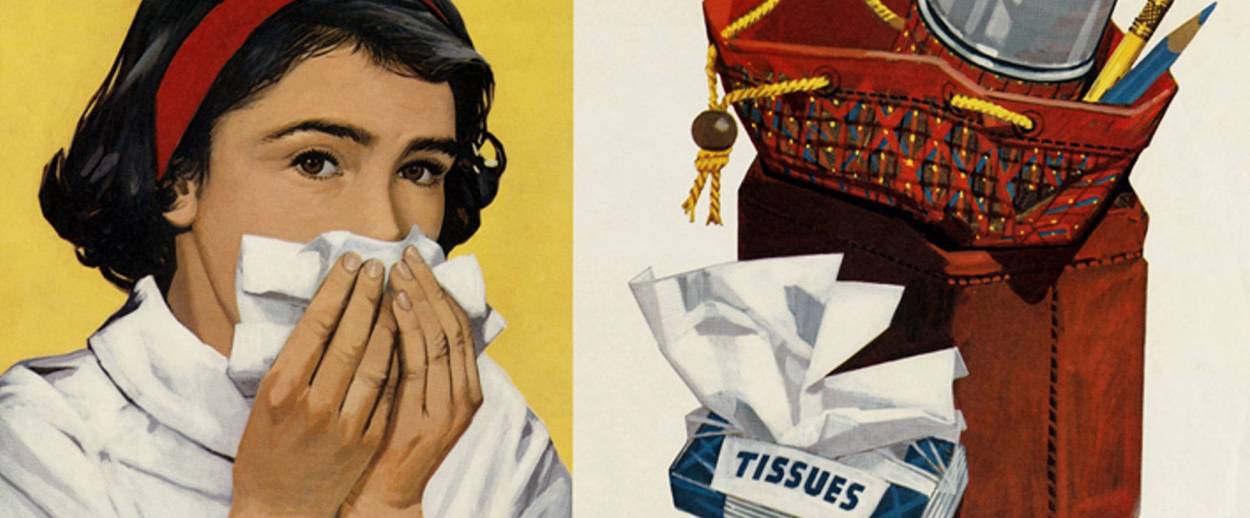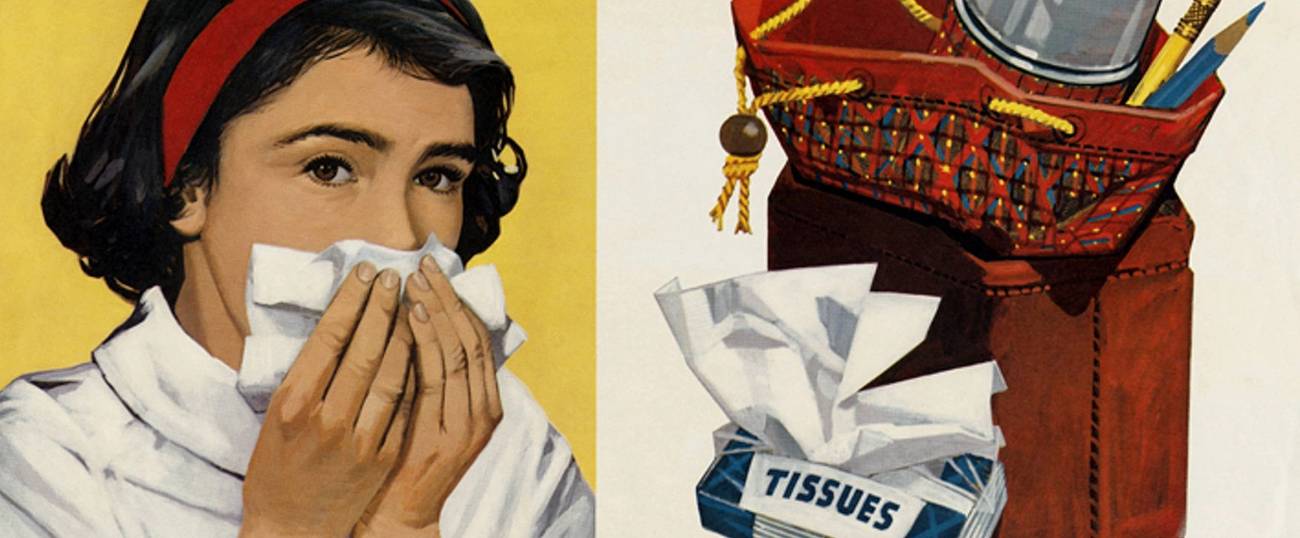Chicken Soup Won’t Stop the Coronavirus
A doctor’s common-sense guide to protecting yourself and your family




As the coronavirus continues to spread around the world, there are now more new cases being reported outside of China than within the country where the outbreak began. On Wednesday the World Health Organization put the number of new cases in China at 411, with a total of 427 reported in other countries. Later that day, the Centers for Disease Control and Prevention confirmed an infection with the virus that causes COVID-19 in California. The new figures lend support for the warning issued earlier this week by the CDC that an outbreak of coronavirus inside the United States, triggered by someone unwittingly bringing the disease into the country, was inevitable. “It’s not so much of a question of if this will happen anymore” said the CDC’s Dr. Nancy Messonnier on Tuesday, “but rather more of a question of exactly when this will happen.”
The bad news is that there is no current vaccine or medication against the virus. The good news is that simple non-pharmacological interventions are extremely effective at preventing its spread. COVID-19, as the disease is officially called, is caused by a new version of the ubiquitous coronavirus, which is a common cause of the winter colds and sniffles we’ve all had at some time. Those winter viruses, including influenza, are spread in droplets, have a hard time surviving in warm or humid weather, and need a living host. It is these factors that allow us to limit the spread of disease and keep ourselves healthy.
The current recommendations to check the spread of COVID-19 are based on the same ones used to curb the spread of influenza. They are focused on NPIs, or non-pharmacological interventions, and they are practices that we should already be following each and every winter, regardless of the threat of a pandemic. They fall into three categories. The first of these is personal and are the things we should be doing every day. Throughout influenza season we should be covering our face when we sneeze or cough, washing our hands frequently, and staying home when we get sick so that we don’t infect others. These are tried and tested measures to effectively limit the spread of winter coughs, colds, and influenza, and they are just as important in combating coronavirus. Face masks, on the other hand, don’t appear to add very much protection. They may trap some droplets in the air that carry viral particles, but they quickly become saturated, and unless they are hermetically sealed, they do not provide anywhere near total protection. But if you choose to use one, dispose of it without touching the front of the mask itself and then wash your hands.
The second category of non-pharmacological interventions are environmental. Although it appears that the COVID-19 virus lasts longer than influenza, neither is viable for long outside of a living host (though precisely how long is a matter of ongoing scientific inquiry). Cruise ship operators have known this for a long time, which is why many ships have automatic openers on the doors of every public space. It prevents people touching door handles and sharing their germs. Community buildings like synagogues or gyms should likewise be sure to keep environmental surfaces clean. Off-the-shelf cleaning products and disinfectants work just fine. When I cruised, I noted that the captain didn’t shake hands with his passengers. That’s another important intervention. In my synagogue the rabbi keeps a small bottle of hand sanitizer next to his prayer book. It may look a little odd but it is very much in keeping with the Jewish value of prioritizing physical health over mere appearances. In fact, it might be better if rabbis and congregants just avoid shaking hands for the next few weeks, though it would probably help with community relations if both were clear about why.
The final category of NPIs are community measures, or the things we do as a group. First among these is “social distancing.” Just as it sounds, this means limiting our physical interactions with others. For example, if COVID-19 spreads into our communities it may be necessary to close schools or to recommend that those who can, should telework and stay away from the office. During the great influenza pandemic of 1918 which claimed 50-100 million lives, movie theaters closed, stores limited their hours, and cafeterias stopped serving customers. No such action is needed yet, but these may be options down the road. Online shopping will, no doubt continue unabated, or even see an increased demand as those who are bored at home look to ways to fill their time.
In terms of stocking up the house in case you have to hunker down at home for a while, there are some helpful items to keep on hand. It’s a good idea to have a couple of months’ supply of medicines that you must take every day, though that is true whether or not there is the threat of a viral pandemic. Motrin or Tylenol will help control fevers associated with influenza and other winter viruses. And since hand-washing should be a standard part of our winter defenses, make sure you have antibacterial soap.
Seasonal influenza and the other viruses that are active this time of year might give us coughs, congestion, a sore throat or body aches. Fevers and chills sometimes follow. These typically last for only a couple of days, and as long as you are keeping hydrated and have no trouble breathing, there is usually no need to see a physician. However, some groups are at a higher risk of complications. These include the very young and the elderly, those with chronic heart or lung problems, and those with a compromised immune system. In these cases it is important to see a physician sooner. And anyone in whom the symptoms are not improving after a couple of days should also consider seeing a physician. But don’t worry about it being coronavirus disease unless you have been in contact with a person who has themselves traveled to an area where the virus has spread.
As we noted, winter viruses don’t last in warm or humid conditions. That’s why these diseases are seasonal, and why there are very few cases of influenza during the summer. We can expect the same from the COVID-19 virus. Every year the festival of Purim is a harbinger that winter is coming to an end, and spring is around the corner. Perhaps this year it might also herald the end of the outbreak. Who wouldn’t drink to that.
Jeremy Brown is a physician and historian of science and medicine and works at the National Institutes of Health in Bethesda, Maryland. He is the author, most recently, of The Eleventh Plague: Jews and Pandemics from the Bible to COVID-19 (Oxford University Press), which won a 2024 National Jewish Book Award.